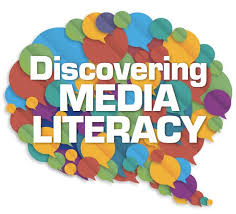
- Open dialogues about media literacy and factual information can create conflict, why does this happen?
Open dialogues about media literacy and factual information can create conflict, I think the cause of conflict is that when people browse social media, they usually ignore media literacy. They do not think about media information, but blindly judge the facts based on the influence of the Internet.
What is media literacy?
Media literacy is a kind of ability, people use this ability to contact, analyze or evaluate the complex information transmitted in the media platform. It can help people be more cautious and rational in the face of information, and make more informed choices.
Why is it important?
Why media literacy is important, because media literacy refers to the ability of information selection, questioning, understanding and reaction that people show when facing various information in different media. In social media platforms, media literacy means not only the literacy of interpreting and receiving information, but also the literacy of disseminating and producing information.
Why is it dismissed?
The reason why media literacy is dismissed is because people blindly believe in following the pandemic in the media platform, people do not think and judge, and believe that influential content equals real information. Searching for the content they want to see, agreeing without interpreting it. As a result, people gradually dismiss media literacy.
Why should you aim for varied views but factual consensus in your PLN?
In PLN, we share our thoughts and opinions with everyone, which will attract people with various opinions on the network. People exchange ideas with each other in PLN, and each exchange of different viewpoints is a learning opportunity. Tolerance and acceptance of various viewpoints can make PLN more diversified and promote PLN to develop better.
Therefore, the benefits of having a good media literacy PLN can help us improve our ability to understand the nature and form of information carried and broadcast by the media, familiar with the methods of seeking information, and have the ability to evaluate, explain, distinguish, select, organize and ability to aggregate information.
Reference
Trilling, B., & Fadel, C. (2009). 21st century skills: Learning for life in our times. San Francisco: Jossey-Bass.
Leave a Reply